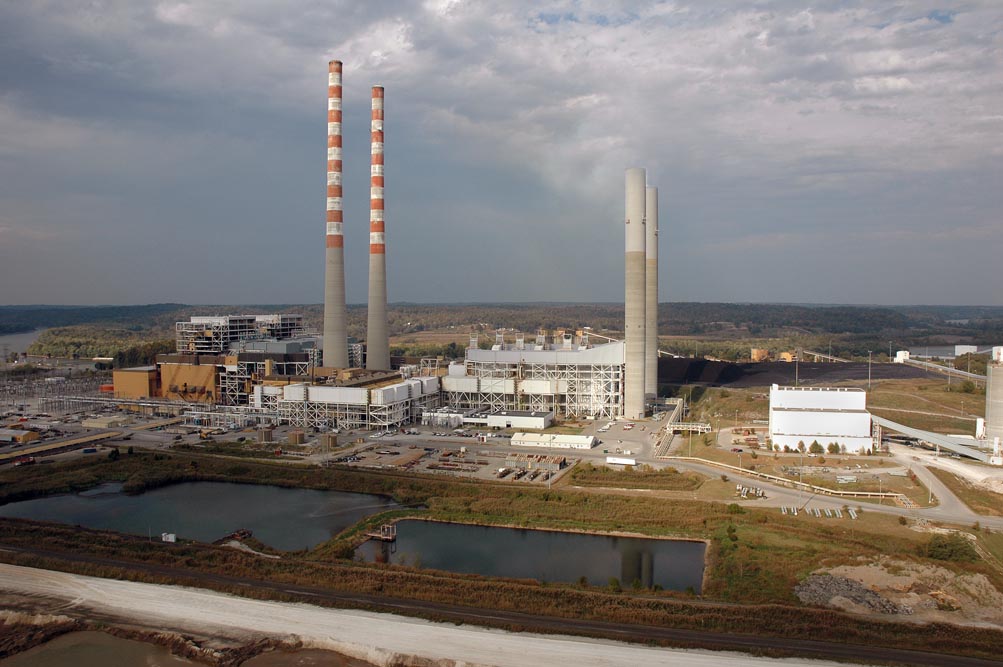Environmental groups welcome federal rules requiring TVA to clean up old coal ash dumps
Published 3:47 pm Monday, May 13, 2024

- The Tennessee Valley Authority’s Cumberland Fossil Plant. (Photo Courtesy of TVA)
|
Getting your Trinity Audio player ready...
|
By Anita Wadhwani
Tennessee Lookout
More than a decade after one of the biggest industrial disasters in Tennessee history, the U.S. Environmental Protection Agency has issued new rules to force power plants to clean up lingering deposits of coal ash, a toxic byproduct of power generation that can leach arsenic, mercury and other dangerous pollutants into streams, lakes and groundwater.
Trending
The new rules require power companies across the nation to dig up millions of tons of coal ash from defunct power plants and old, unlined landfills that have contact with groundwater and move them to dry, lined landfills.
In Tennessee, the rules will apply to sites in Sumner, Anderson, Roane, Hawkins and Humphreys counties owned by the Tennessee Valley Authority. It was at the TVA’s Kingston Fossil Plant in 2008 that disaster struck: an infrastructure breach sent more than a billion gallons of toxic coal sludge into nearby homes and waterways then sickened workers brought in to clean it up. Scores of those workers have since died.
Environmental groups hailed the much-anticipated new EPA rules as a critical and necessary check on the operations of the Tennessee Valley Authority, which for decades has disposed of the toxic residue of coal-fired power plants into unlined ponds and landfills.
“This is so important because many utilities are already cleaning up coal ash in the southeast, but for the ones like the TVA who have not, this is important to drive those cleanups and protect surrounding communities and their water sources,” said Nick Torrey, a senior attorney with the Southern Environmental Law Center.
TVA is currently reviewing the new EPA rules, Scott Brooks, an agency spokesperson, said Tuesday. In a brief statement Brooks called TVA an “industry leader in safe, innovative coal ash management, implementing best practices years before they were required.”
TVA’s handling of coal ash has been the subject of scrutiny from state and federal regulators since the 2008 Kingston spill. The utility is currently subject to an order by the Tennessee Department of Environment and Conservation to investigate all of its existing coal ash sites and provide a plan for remediating them, due this year. The plan has not yet been made public.
Trending
The EPA coal ash rules, issued last week, are meant to close a loophole created after it set for the proper disposal of coal ash at active coal-fired power plants in 2015. The 2015 rules did not address the existing stockpiles of coal ash waste at defunct plants and in unlined landfills. The TVA and other power companies will now be required to remediate these coal ash deposits.
Among the unanswered questions now are whether the TVA will choose to transport coal ash from existing sites to other communities, Bri Knisley, director of public power campaigns for Appalachian Voices, said.
After the Kingston coal ash spill, TVA opted to transport more than 800 million tons of coal ash to Uniontown, Alabama, a majority Black and predominantly poor community.
Today, Uniontown residents have been left with few answers about the long-term impact of coal ash landfilled in their backyard, a question brought into sharper focus by recent preliminary findings by the EPA that exposure to even small amounts of coal ash can harm health and has cancer risks 35 times higher than previously understood.
“That’s the other complicating factor,” Knisely said. “If it gets cleaned up, where will they store it? How will they involve the community or public in where the ash is going to go?”
Knisely noted the newly-issued EPA rules also do not address safety measure for workers responsible for transporting the coal waste.
Axel Ringe, chair of the Sierra Club coal ash working group, said he was also concerned about the track records of power companies since the 2015 rule requiring stringent containment of coal ash residue at active coal-fired plants. “Most power plants have ignored it,” Ringe said.






